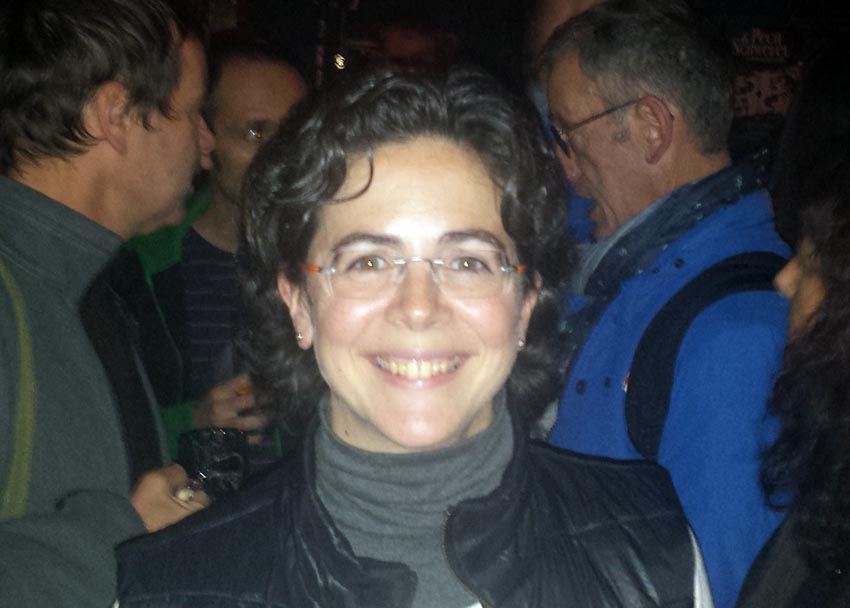Sonia Hernandez Albistegui left her hometown in the Basque Country when she was 17 to study optics in Alicante, Spain. After that she moved to Palencia and then to Valladolid, where she has been living for three decades. This Spanish city in Castilla-León is the place she works, where she is rasing her family. Born in Valladolid, her daughters Ane and Iraia, 9 and 4, are grewing up speaking Euskera at home, and they oldest already speaks some English at school.
Joseba Etxarri. Long gone are the days when many Basques moved to Valladolid to go to the University. Our interviewee didn’t study there either, but at the University of Alicante. With a degree in Optics and Optometry under her arm and after a short stop in Palencia, she moved to Valladolid, where she runs a business with other partners. It took her ten years before she got involved with the local Basque club, the Gure Txoko, where she currently serves on the board of directors and also teaches Euskera.
What is life in Valladolid like?
-Comfortable, busy, normal…The beginning is always the hardest, until you get used to it, and you make your niche. I got married a year before moving here in my hometown of Eibar, in Arrate, and we came because we both got jobs here. After our daughters were born, everything changed, and you get to know other parents better, at daycare, school….Valladolid has been good to us. It is a rich city culturally, architecturally, and historically…there are theaters, festivals and an interesting cultural offering. There are parks and green zones, its gastronomy is also rich and not to mention its wines. Here you can enjoy a good quality of life. Prices are cheaper than in the Basque Country and so are salaries.
Are there many Basques?
-More than you’d think and more than are members of the club. There are several occasions when someone hears me speaking Basque with my mother on the phone or with my daughters and they tell me that one of their parents or someone in their surroundings is Basque.
There is a Basque club, Gure Txoko, that functions like a txoko or society.
-We are over 60 families and we have a three-story clubhouse with a kitchen, living room, practice room and a computer room. Our system is similar to the txokos in Euskadi, each member has a key and can use the kitchen or the facilities. We usually gather twice a month, also have choir practice and Basque classes, organize outings, recitals and performances by groups and artists from Euskadi when they come to visit.
You had already lived here for about ten years when you joined Gure Txoko.
-We didn’t know about it, we were invited and we feel glad we did. The atmosphere and the people are exceptional, and they are always ready to help. My husband was on the board of directors and when they decided they needed a Basque teacher they called me as they knew that I had EGA, the diploma to teach Basque. I have to say that it has been very good for me, since it got me into HABE and after many years of only speaking with my children or by phone, it helped me recuperate a lot of vocabulary and abled me to share work, experience and methodology with professors at other Basque clubs all over Europe.
Your daughters were born in Valladolid and are Basque speakers.
-Yes, my husband is from Benidorm and doesn’t speak Basque and when our oldest was born he was ok with me speaking to our children in Basque. In fact, he understands quite a bit now. I am very proud that my daughters speak Basque; I couldn’t have done it any other way. I also think that it is important for them. Ane is now trilingual and she is also very proud and tells her classmates that she is going to teach them Basque.






 Send to a friend
Send to a friend Add comment
Add comment








